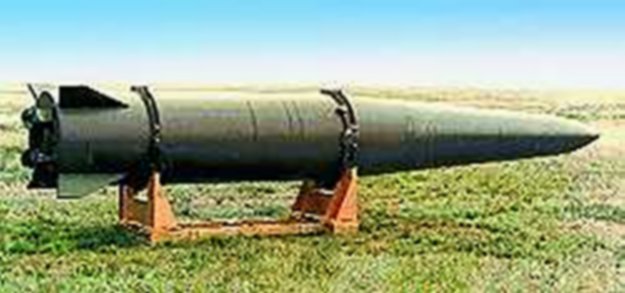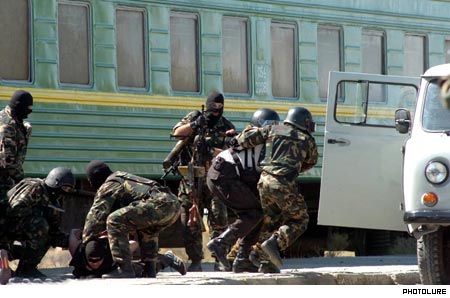Re: The Rise of the Russian Empire: Russo-Armenian Relations

RYAZAN REGION, July 26 (RIA Novosti) - Russia's defense minister ruled out Wednesday reconsidering a $1 billion contracts on supplies of military planes and helicopters to Venezuela. Tom Casey, a deputy spokesman for the U.S. State Department, said Tuesday that President George Bush's administration wanted Russia to review the deals. He said the weapons purchases Venezuela planned exceeded the country's demands and did not contribute to regional stability.
But Sergei Ivanov, who is also a deputy prime minister of Russia, said, "Reviewing the contract is absolutely out of the question. In my opinion, the 24 planes and the number of helicopters recorded in the contract are not excessive for the defense of a small country such as Venezuela." "We will honor the contract," Ivanov said, adding that Venezuela had no restrictions on arms supplies. The South American country's outspoken president, Hugo Chavez, is touring defense-industry plants as part of a three-day visit to Russia.
The Foreign Ministry's official spokesman also said Wednesday Russian arms deliveries to Venezuela fully corresponded to the norms of international and Russian law. Russia has supplied Venezuela with Kalashnikov assault rifles in addition to the billion-dollar combat aircraft deal. Mikhail Kamynin said, "Military-technical cooperation with Venezuela, as well as with other countries, is carried out by Russia in full accordance with the norms of international law as well as Russian legislation."
Link: http://en.rian.ru/world/20060726/51864682.html
Russia plans to expand presence on Venezuelan arms market
MOSCOW, June 13 (RIA Novosti) - Russia is planning to increase sales of military hardware in Venezuela by offering the Latin American country a wide variety of advanced weaponry, the state-controlled arms exporter said Tuesday. Rosoboronexport said it would focus on modern aircraft, including Su-27SK Flanker and Su-30MK fighters and the Mi-28N Night Hunter attack helicopter, as well as small arms, at the Expo Ejercito 2006 arms show on June 13-18 in the Venezuelan capital, Caracas. Venezuelan President Hugo Chavez said earlier this year that his country could purchase Sukhoi aircraft from Russia to replace its contingent of U.S. F-16 multi-role fighters after Washington imposed an embargo arms sales to the country.
Military-technical cooperation between Moscow and Caracas has been on the rise since Rosoboronexport and the Venezuelan government signed contracts on arms supplies in 2005. Russia delivered three out of 15 Mi-17 V5 Hip-H multipurpose helicopters to Venezuela in March 2006 and supplied the country with the first 30,000 of 100,000 AK-103 assault rifles under a $54 million contract in early June. "The talks during the exhibition will lead to contracts on procuring Russian-made weaponry and military equipment and their integration into systems of national and collective security in the region," Rosoboronexport said. The Russian arms export monopolist will also present at the show high-tech civilian equipment developed under conversion programs at defense-industry enterprises.
Link: http://en.rian.ru/russia/20060613/49402868.html

Russia rebuffs U.S. call to rethink $1bln Venezuela arms deal
RYAZAN REGION, July 26 (RIA Novosti) - Russia's defense minister ruled out Wednesday reconsidering a $1 billion contracts on supplies of military planes and helicopters to Venezuela. Tom Casey, a deputy spokesman for the U.S. State Department, said Tuesday that President George Bush's administration wanted Russia to review the deals. He said the weapons purchases Venezuela planned exceeded the country's demands and did not contribute to regional stability.
But Sergei Ivanov, who is also a deputy prime minister of Russia, said, "Reviewing the contract is absolutely out of the question. In my opinion, the 24 planes and the number of helicopters recorded in the contract are not excessive for the defense of a small country such as Venezuela." "We will honor the contract," Ivanov said, adding that Venezuela had no restrictions on arms supplies. The South American country's outspoken president, Hugo Chavez, is touring defense-industry plants as part of a three-day visit to Russia.
The Foreign Ministry's official spokesman also said Wednesday Russian arms deliveries to Venezuela fully corresponded to the norms of international and Russian law. Russia has supplied Venezuela with Kalashnikov assault rifles in addition to the billion-dollar combat aircraft deal. Mikhail Kamynin said, "Military-technical cooperation with Venezuela, as well as with other countries, is carried out by Russia in full accordance with the norms of international law as well as Russian legislation."
Link: http://en.rian.ru/world/20060726/51864682.html
Russia plans to expand presence on Venezuelan arms market
MOSCOW, June 13 (RIA Novosti) - Russia is planning to increase sales of military hardware in Venezuela by offering the Latin American country a wide variety of advanced weaponry, the state-controlled arms exporter said Tuesday. Rosoboronexport said it would focus on modern aircraft, including Su-27SK Flanker and Su-30MK fighters and the Mi-28N Night Hunter attack helicopter, as well as small arms, at the Expo Ejercito 2006 arms show on June 13-18 in the Venezuelan capital, Caracas. Venezuelan President Hugo Chavez said earlier this year that his country could purchase Sukhoi aircraft from Russia to replace its contingent of U.S. F-16 multi-role fighters after Washington imposed an embargo arms sales to the country.
Military-technical cooperation between Moscow and Caracas has been on the rise since Rosoboronexport and the Venezuelan government signed contracts on arms supplies in 2005. Russia delivered three out of 15 Mi-17 V5 Hip-H multipurpose helicopters to Venezuela in March 2006 and supplied the country with the first 30,000 of 100,000 AK-103 assault rifles under a $54 million contract in early June. "The talks during the exhibition will lead to contracts on procuring Russian-made weaponry and military equipment and their integration into systems of national and collective security in the region," Rosoboronexport said. The Russian arms export monopolist will also present at the show high-tech civilian equipment developed under conversion programs at defense-industry enterprises.
Link: http://en.rian.ru/russia/20060613/49402868.html








Comment